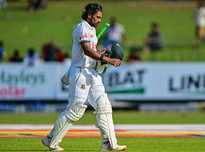Dengue fever, a mosquito-borne viral infection, poses a significant health challenge in India. Primarily transmitted by the Aedes aegypti mosquito, active during the day, dengue can manifest in a range of symptoms, from mild discomfort to severe, life-threatening complications, especially for individuals with weakened immune systems.
With India accounting for a substantial portion of the estimated 100–400 million dengue infections worldwide, the annual monsoon season often sees a surge in cases. However, there is now a beacon of hope. India's first dengue vaccine is nearing the finish line, with Phase 3 trial enrollment almost complete.

Why Dengue Poses a Threat
Dengue is a viral infection transmitted by Aedes mosquitoes. It triggers high fever, intense headaches, joint and muscle pain, and in some instances, a perilous drop in blood platelet levels. In severe cases, dengue can result in bleeding, organ failure, and even death. Children and the elderly face the highest risk.
The Hurdles in Vaccine Development
For years, scientists have faced challenges in developing a safe and effective dengue vaccine. One major obstacle is the existence of four distinct types of dengue viruses. A successful vaccine must provide protection against all four serotypes. Some vaccines developed abroad have yielded inconsistent outcomes and are not widely adopted.
India's Indigenous Vaccine: A Ray of Hope
The Serum Institute of India (SII) is developing India's first dengue vaccine. Named "TetraVax-DV," the vaccine is engineered to provide protection against all four dengue virus types. Like other vaccines, it employs a weakened version of the virus to stimulate the body's immune system to combat dengue. Since it is not a live virus, it cannot cause the disease.
Key features of the vaccine:
Understanding Phase 3 Trials
Before a vaccine can be approved for public use, it must undergo rigorous testing through several phases:
Phase 3 is the most critical stage. It demonstrates whether the vaccine can effectively prevent dengue within a community.
India's Progress
Phase 3 trials for India's dengue vaccine commenced in 2023. The trials are taking place at over 20 locations nationwide, encompassing both urban and rural settings. The goal is to enroll over 10,000 volunteers, including children and adults from diverse backgrounds. Currently, enrollment is nearly complete, and initial results are promising.

What's Next?
The Importance of a Dengue Vaccine
India faces a high burden of dengue cases. Outbreaks strain healthcare facilities and cause suffering for families. A safe and effective vaccine could:
Regardless of the vaccine's progress, preventive measures against dengue remain crucial. These include protection from mosquito bites (through the use of lotions and full-coverage clothing), covering drains, and eliminating standing water sources to prevent mosquito breeding.
Source
The Indian Council of Medical Research (ICMR) and Panacea Biotec
Newer articles
Older articles
 Bangladesh Test Captain Najmul Hossain Shanto Resigns After Sri Lanka Series Defeat
Bangladesh Test Captain Najmul Hossain Shanto Resigns After Sri Lanka Series Defeat
 SA20 Auction: Teams Can Retain Up to Six Players as Salary Cap Jumps to $2.3 Million
SA20 Auction: Teams Can Retain Up to Six Players as Salary Cap Jumps to $2.3 Million
 Android Users Urged to Patch Now: Critical Security Flaws Expose Devices to Attacks
Android Users Urged to Patch Now: Critical Security Flaws Expose Devices to Attacks
 X Cracks Down: Over Half a Million Accounts Suspended in India for Policy Breaches
X Cracks Down: Over Half a Million Accounts Suspended in India for Policy Breaches
 What Your Phone Grip Says About You: A Personality Test
What Your Phone Grip Says About You: A Personality Test
 India's Squad Trimmed: Pacer Released Ahead of Second Test Against England in Birmingham
India's Squad Trimmed: Pacer Released Ahead of Second Test Against England in Birmingham
 Vegetarian Power: 20 Plant-Based Protein Sources That Outperform Eggs
Vegetarian Power: 20 Plant-Based Protein Sources That Outperform Eggs
 ICC Test Rankings: Pant Hits Career High, Bumrah Stays on Top, Root Leads Batters
ICC Test Rankings: Pant Hits Career High, Bumrah Stays on Top, Root Leads Batters
 Rishabh Pant Redefining Cricket: Greg Chappell Hails Wicketkeeper-Batter's Revolutionary Impact
Rishabh Pant Redefining Cricket: Greg Chappell Hails Wicketkeeper-Batter's Revolutionary Impact
 India's Fielding Woes and Top Order Collapse Blamed for First Test Defeat Against England: Former Selector Weighs In
India's Fielding Woes and Top Order Collapse Blamed for First Test Defeat Against England: Former Selector Weighs In